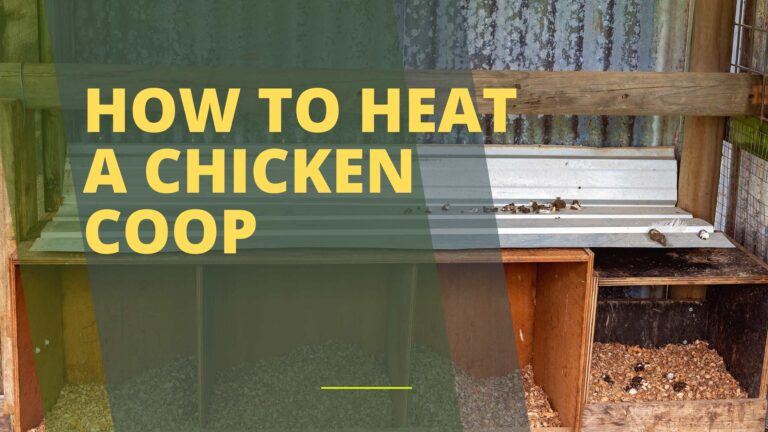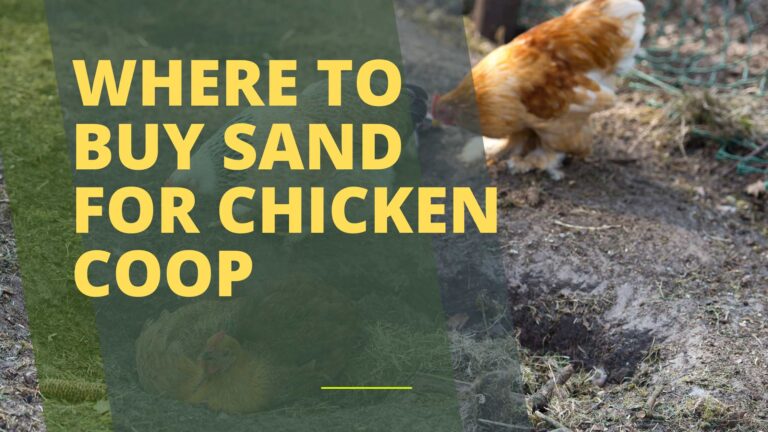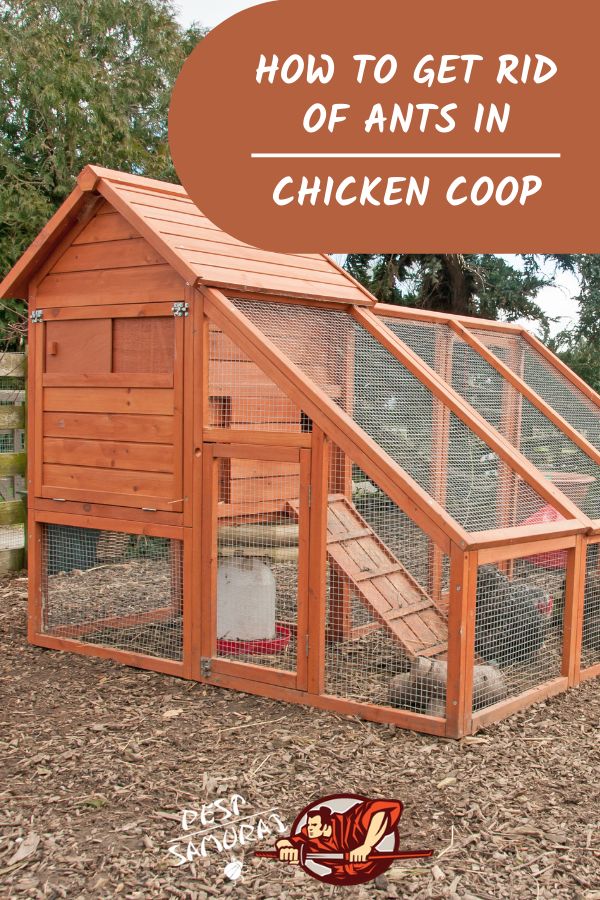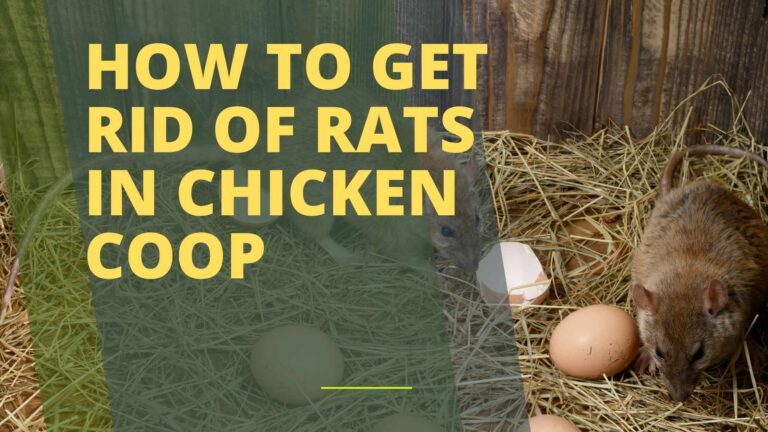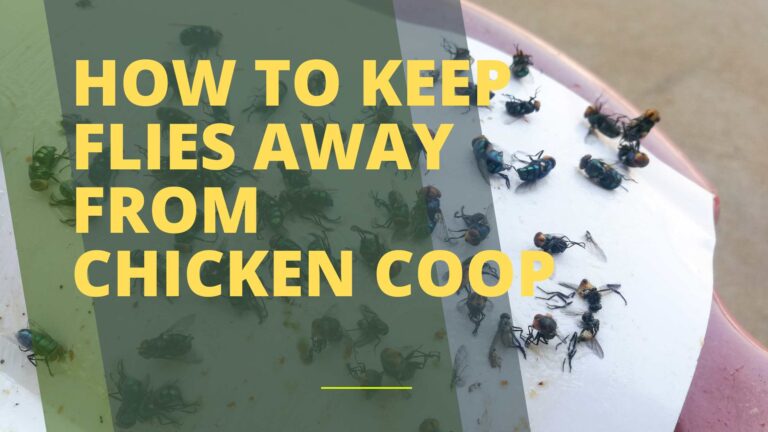To deter raccoons from chicken coops, use secure latches and surround the area with fencing. Motion-activated lights or radios can also scare them away.
Raccoons pose a significant threat to backyard chicken coops, as they are clever predators known for their dexterity and persistence. Chicken owners must prioritize the security of their coops to safeguard their poultry from these nocturnal creatures. With the right preventative measures, it’s possible to create a raccoon-proof environment.
Ensuring a robust coop structure with strong locks and barriers is vital. The challenge of raccoon deterrence isn’t insurmountable; it just requires a strategic approach focussing on fortification and scare tactics. Understanding raccoon behavior and employing effective countermeasures can lead to peaceful coexistence between your feathered friends and the local wildlife.

Credit: www.petautodoors.com
Introduction To Raccoon Behavior
Introduction to Raccoon Behavior: Understanding the habits of raccoons is vital in safeguarding your chickens. These clever nocturnal mammals are known for their dexterity and persistence. With a high sense of curiosity and an excellent memory, raccoons often rely on opportunity and easy access when seeking food. Recognizing these behaviors is the first step to keeping your chicken coop secure.
Raccoon Feeding Habits
Raccoons are not picky eaters. This adaptability makes them effective foragers. Their diet includes fruits, nuts, and small animals, such as chickens. Protecting your coop requires an understanding of these feeding habits:
- Omnivorous diet: Raccoons eat both plants and animals.
- Opportunistic: They prefer easy meals, like unprotected coops.
- Nocturnal activity: Raccoons search for food at night.
- Problem solvers: They can open latches and climb fences.
Understanding Nightly Visitors
Raccoons often visit at night when they are most active. Your coop could be in danger if precautions are not in place. Motion-sensitive lights or noise-makers can deter these visitors. Regularly changing your strategies prevents raccoons from learning patterns and finding a way in.
| Strategy | Effectiveness |
|---|---|
| Locks | Prevent opening doors |
| Fencing | Blocks physical entry |
| Deterrents | Scare off raccoons |
Risks Raccoons Pose To Chickens
Protecting your chickens from raccoons is crucial for their well-being. These clever creatures can be more than just a nuisance. They bring serious risks to your feathered friends. Knowing these dangers helps in creating effective defense strategies.
Disease Transmission
Raccoons carry diseases that are harmful to chickens. These can spread quickly within your coop. An uninvited raccoon might introduce:
- Rabies — a deadly virus affecting the brain.
- Leptospirosis — it can cause severe organ damage.
- Distemper — often fatal for chickens.
To lower these risks, secure your coop and keep their environment clean.
Physical Dangers To Poultry
The threat from raccoons isn’t just viral. These predators can attack and kill chickens, often leaving a bloody scene.
Signs of a raccoon attack include:
| Sign | Meaning |
|---|---|
| Overturned Nest Boxes | Chaos caused by raccoons searching for eggs or birds |
| Missing Birds | Raccoons often snatch chickens at night |
| Scattered Feathers | Hints at a scuffle between the birds and the raccoon |
Fight these dangers by fortifying your coop and ensuring small openings are blocked. Keep raccoons out to protect your poultry!
Anatomy Of A Secure Chicken Coop
Chickens need safety from raccoons. A secure coop stops these smart creatures. Let’s create a coop that keeps your hens safe. It’s all in the design.
Durable MaterialsDurable Materials
Raccoons are strong and clever. Weak materials won’t stop them. Use these:
- Heavy-duty wire mesh: It keeps raccoons out. Thin wire or chicken wire won’t do.
- Solid wood or metal: Walls must be tough. Raccoons can’t tear through.
- Secure fasteners: Screws beat nails. They hold structures tight.
Design Flaws To Avoid
Even the best materials fail with poor design. Watch out for these mistakes:
| Flaw | Problem | Solution |
|---|---|---|
| Wide gaps | Raccoons squeeze through small spaces. | Check for gaps. Seal them tight. |
| Weak locks | Raccoons can open latches. | Use padlocks or carabiners. |
| Low roosts | Raccoons reach high. | Place roosts higher up. |
Inspect your coop. Fix weak points. Your chickens will thank you with more eggs!
Fortifying Your Coop
For chicken coop owners, the threat of raccoons is real and ever-present. These clever critters can wreak havoc if they gain access to your feathery friends. Fortifying your coop isn’t just a good idea; it’s a necessity. Let’s explore some effective strategies to bolster your chicken haven against raccoon invasions.
Reinforcing Locks And Latches
Secure latches act as the first line of defense against raccoon intrusions. Raccoons have nimble fingers capable of opening standard latches. Upgrading to heavy-duty locks and complex latches can make all the difference. Consider installing double locks or padlocks on your coop doors, ensuring they stay firmly shut even with curious paws at play.
Use Of Hardware Cloth
Chicken wire keeps chickens in but doesn’t keep raccoons out. Instead, opt for hardware cloth with a quarter-inch mesh. This material is much sturdier and provides a barrier that raccoons can’t chew through or tear. Wrap your coop, including the roof and any vents or windows, with this rugged fabric. Secure it with screws and washers to ensure there are no loose ends for raccoons to pull at.
Natural Deterrents
Raccoons may look cute, but they can be a real threat to your chicken coop. To protect your feathered friends, natural deterrents can be a safe and effective choice. These solutions work with nature, rather than against it. They keep your coop secure without the need for harmful chemicals. Let’s explore a few options that can help safeguard your chickens from raccoon paws.
Predator Urine
One powerful deterrent is the scent of a predator. Raccoons have a strong sense of smell. This smell signals danger for them. Applying predator urine around your coop can send a warning to any curious raccoons looking for a meal.
- Fox urine is a popular choice and readily available in many outdoor stores.
- Coyote urine also works well and you can use it to create a perimeter around your coop.
Apply the urine to rags or cotton balls. Place these around and on top of your coop. Make sure to reapply after rain to ensure the scent stays strong.
Plants That Repel Raccoons
Did you know certain plants can keep raccoons at bay? Plants with a strong scent can confuse raccoons and mask the smell of your chickens.
| Plant | Scent Strength | Placement |
|---|---|---|
| Mint | High | Around coop borders |
| Citronella | Medium | Near coop entry |
| Marigolds | Medium | Intermixed in garden |
Plant these in strategic locations for the best effect. For instance, marigolds intermixed in your garden can also help with pest control. Not only do you keep raccoons away, but you also get a beautiful garden as a bonus!
Technological Solutions
Guarding chickens against raccoons requires smart tactics. Technological advances can help. Lights and sounds create a raccoon-resistant coop. No more restless nights; your feathered friends stay safe with technology.
Motion Activated Lights
Raccoons fear sudden bright lights. Use this fear to your advantage. They scavenge in darkness. Motion sensors trigger lights and scare these masked invaders away. Here’s how you set it up:
- Install lights around the coop.
- Make sure all blind spots are covered.
- Use durable, waterproof fixtures.
Choose solar-powered lights for eco-friendly security. Nighttime becomes safe time.
Ultrasonic Repellers
High-frequency sounds keep raccoons at bay. They can’t stand the noise. Ultrasonic repellers emit sounds. These sounds are unheard by humans but irritating to pests. Such devices run on batteries or electricity. An ideal setup might include:
- Placing multiple devices around the perimeter.
- Regularly checking and changing batteries, if needed.
- Adjusting frequency levels to ensure effectiveness.
Raccoons lose interest in your coop with constant ultrasonic disturbance. Peace of mind for you, peace for your chickens.
Maintaining A Clean Surrounding
Keeping raccoons away from your chickens starts with cleanliness. A tidy coop area deters these clever critters. Clean habitats mean fewer attractions for raccoons looking for an easy snack. Below are steps for an orderly coop.
Secure Trash and CompostSecure Trash And Compost
Trash and compost are like dinner bells to raccoons. Seal these items away safely.
- Use bins with locking lids.
- Place bins away from the coop.
- Empty regularly to avoid odors.
Regular Cleaning Schedules
Consistent cleaning keeps pests at bay. Mark a calendar with coop cleaning dates.
- Remove leftover food daily.
- Change bedding once a week.
- Deep clean every month.
| Task | Frequency |
|---|---|
| Remove food | Daily |
| Change bedding | Weekly |
| Deep clean | Monthly |
Follow these steps to create a fortress against raccoons. Happy chickens and a clean coop go hand-in-hand!
Training And Pets As Protectors
Raccoons are crafty critters, and when prized chickens are at risk, using training and pets for protection is smart. These sneaky visitors can turn a peaceful coop into a midnight snack bar, leading to heartache and frustration for poultry owners. But fear not! By incorporating vigilant guardian animals and training techniques, your feathered friends’ safe haven is achievable. This proactive approach ensures you’ve created a fortress of safety around your chicken coop.
Guardian Animals
Guardian animals stand as the first line of defense against raccoon invasions. They’re not mere pets; they’re trained protectors capable of deterring pesky intruders. Here’s a list of some of the most effective guardians:
- Dogs: Breeds like Great Pyrenees or Anatolian Shepherds are champions at guarding livestock.
- Geese: Surprisingly, their honk can be a formidable alarm, and they’re protective by nature.
- Llamas: These animals are curious and naturally suspicious of predators, including raccoons.
It’s crucial to choose a guardian that melds well with your chickens and train them early on. Consistency and positive reinforcement during training sessions lead to a reliable guardian for your coop.
Training Chickens To Roost
Beyond external guardians, teaching chickens to roost properly at night plays a pivotal role in safeguarding them. A high roost is a raccoon-resistant roost.
- Start by providing roosting bars at least 2-3 feet above the ground.
- Encourage evening roosting by limiting daytime naps.
- Ensure their roosting area is comfortable and spacious, discouraging ground-sleeping habits.
Additional measures such as securing the coop with robust latches and reinforcing the structure from wire mesh below prevent any attempt of digging or sneaking in by raccoons. Combining these strategies with guardian presence creates a fortress that keeps your chickens snug and secure.
Reviewing Local Wildlife Laws
Before devising strategies to protect your poultry, it’s crucial to understand the legal framework surrounding wildlife management. Knowledge of these laws ensures ethical and legal practices when implementing measures to keep raccoons at bay. In this section, we discuss permissible actions and the importance of local ecosystems in relation to raccoon deterrence.
Legal Deterrent Methods
Legal deterrents vary by region, therefore, contacting wildlife authorities is essential. They provide approved methods to discourage raccoons without harming them or breaking local laws.
- Fencing solutions
- Noise devices within limits
- Non-lethal traps and relocation
Employ these humanely and responsibly to avoid penalties.
Understanding Local Ecosystem
Raccoons play a role in ecosystem balance. They control pests and their foraging habits can benefit soil health. Full eradication could disrupt this balance, which makes proper understanding crucial.
| Raccoon Role | Benefit to Ecosystem |
|---|---|
| Pest Control | Limiting insect population |
| Foraging | Improving soil aeration |
Your local wildlife authority will provide valuable insights into the significance of raccoons in your area. Use this information to create a balanced approach to protect your chickens without harming the ecosystem.
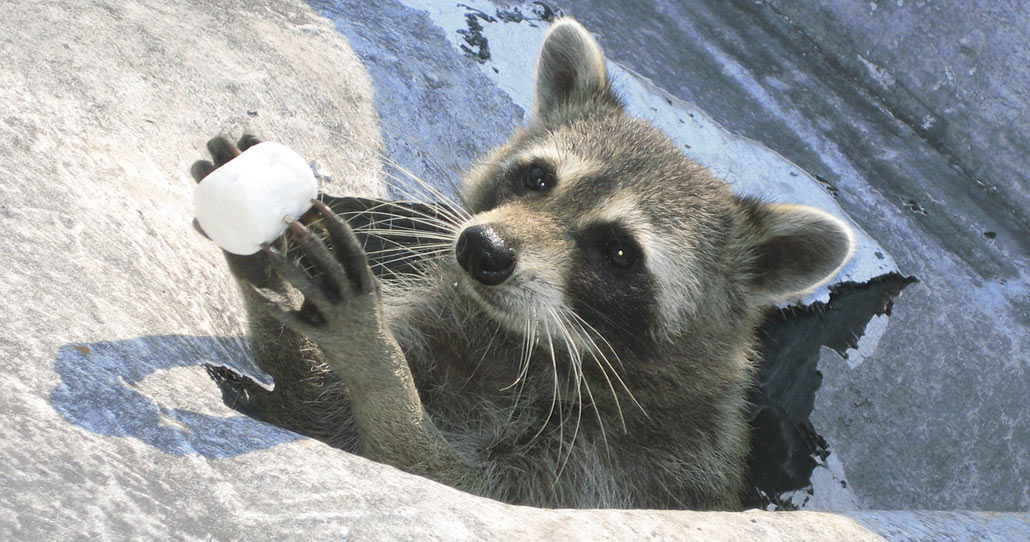
Credit: wildliferemovalusa.com
When To Call A Professional
Keeping raccoons away from your chicken coop requires smart strategies and sometimes even the most cunning defenses don’t work. When your efforts to protect your chickens aren’t enough, it’s time to seek professional help. Whether you’re dealing with a particularly clever raccoon or your coop has become their favorite haunt, experts can step in to secure your flock.
Persistent Raccoon Problem
Raccoons are stubborn and smart. Maybe you’ve tried everything from secure latches to motion lights. If these clever critters still find a way to your chickens, it’s time for professional intervention. Professionals bring experience and know-how, offering solutions beyond the reach of most coop owners.
- Multiple raccoon visits in a week
- Hens show signs of stress or injury
- Visible raccoon tracks or damage
Assessing Coop Vulnerabilities
Experts do more than set traps. They analyze your chicken coop’s weak spots. Fencing, locking mechanisms, and structural flaws are all areas that professionals can enhance to deter future intruders. This includes:
| Assessment Area | Expert Solutions |
|---|---|
| Fencing | Reinforcement with hardware cloth |
| Locks | Installation of raccoon-proof locks |
| Structure | Repair of any coop damages |
A professional doesn’t just repair but also advises on long-term safety measures. They ensure your coop becomes a raccoon-resistant fortress. Seek help if:
- You spot structural damage
- Raccoons bypass existing defenses
- New vulnerabilities emerge
Monitoring And Adapting Strategies
Keeping chickens safe from raccoons takes smart defenses. A key part of protecting your coop is not just setting up deterrents but also monitoring and adapting your strategies over time. Understanding how these clever critters think and change their habits is crucial for ensuring your coop remains a raccoon-free zone.
Keeping A Log
Start tracking interactions with raccoons by keeping a log. Note every attempt they make to access the coop. Use a simple table to record the date, time, and method of each encounter. This information can highlight patterns or weak spots in your defenses.
| Date | Time | Method of Encounter |
|---|---|---|
| 04/01/2023 | 1:00 AM | Attempted to open latch |
| 04/02/2023 | 12:30 AM | Dug under fence |
Adjusting To Seasonal Changes
Raccoons change their behavior with the seasons. Adapt your protection measures accordingly. Here are some tips to tailor your strategy:
- Increase lighting around the coop during darker months.
- Reinforce the coop’s structure in winter when raccoons get more desperate for food.
- Secure garbage and compost bins to avoid attracting raccoons in the warmer months.
Review your log regularly to adjust these tips as needed.

Credit: www.hobbyfarms.com
Conclusion
Securing your chicken coop against raccoon intrusions requires vigilance and the right strategies. By implementing these tips, you’ll not only protect your poultry but also deter these clever critters. Remember, consistency is key in raccoon-proofing efforts, safeguarding the well-being of your flock for the long haul.

